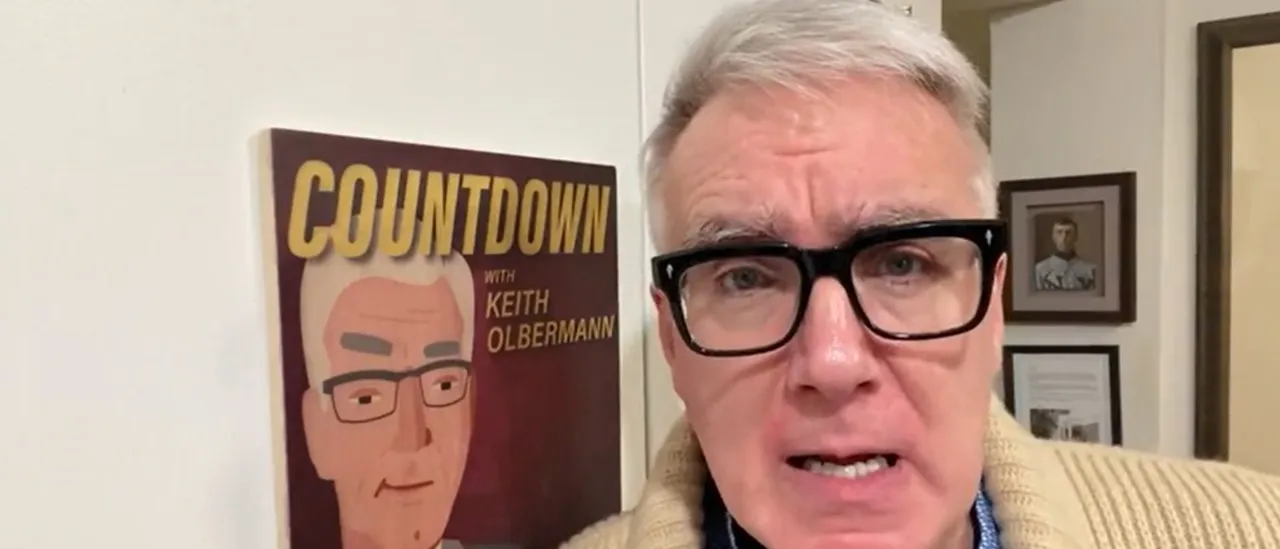
Former MSNBC host Keith Olbermann issued a public apology to CNN commentator Scott Jennings following a series of controversial online posts. Initially, Olbermann’s messages, one of which included the phrase “You’re next, motherfucker,” were swiftly deleted, but not before Jennings reposted screenshots. The incident prompted a significant online reaction, particularly given the timing and the nature of the content. Olbermann’s rapid deletion of the initial posts only served to intensify the scrutiny.
In his apology, posted on X, Olbermann stated he regretted the posts and acknowledged their potential for misinterpretation as threats beyond professional implications. He clarified that his intent was limited to commentary on Jennings’ career, and explicitly stated his opposition to political violence and threats thereof. He also expressed regret for the delay in his apology. This apology followed a series of highly critical posts targeting several individuals previously associated with the Trump administration, including Secretary of State Marco Rubio and border czar Tom Homan. The original posts, deleted before a widespread public reaction, indicated a level of animosity extending beyond simple political disagreement.
Before the apology, Olbermann had replaced the initial offensive posts with another message suggesting Jennings’ career at CNN was facing imminent jeopardy. This replacement message, while perhaps less explicitly threatening, still carried derogatory undertones, implying Jennings’ professional future was uncertain. The incident unfolded against the backdrop of a massive memorial service for Charlie Kirk, the Turning Point USA founder who was assassinated earlier in September. This context added a layer of sensitivity to the situation, highlighting the potential for misinterpretation and the gravity of Olbermann’s actions. The timing of the posts, particularly given the recent assassination, further intensified the controversy, leading to widespread public discussion and debate surrounding the nature of political discourse and the potential for online threats to escalate into violence. The affair underscores the complexities of online communication and the potential for even deleted posts to have significant consequences.
The situation highlights the need for careful consideration of online communication, particularly in the context of charged political debates. Olbermann’s initial remarks, even with the subsequent apology, raise questions about the boundaries of acceptable political commentary and the potential impact of inflammatory language, even when intended as a critique of someone’s professional performance. Olbermann’s statement, while apologetic, underscores the significance of responsible online behavior and the need to avoid even the appearance of threats, especially in a highly volatile political climate. The entire sequence of events, from the initial posts to the subsequent apology, serves as a case study in the potential pitfalls of unchecked online expression and the importance of considering the wider context and implications of one’s words. The incident also brings renewed attention to the need for responsible online behavior and the potential for even seemingly minor online interactions to escalate into major controversies.
Jennings’ response to Olbermann’s initial remarks and the subsequent apology remains publicly undisclosed, although he initially shared screenshots of the offensive messages. The incident, as a whole, serves as a cautionary tale of the potential for online interactions to escalate, highlighting the importance of mindful communication, especially in the face of heightened political tensions. The entire controversy, from the initial posts to the apology, and subsequent analysis, serves as a stark reminder of the responsibilities inherent in public communication in the digital age. The impact of Olbermann’s actions extended beyond the immediate participants, prompting a wider conversation about online safety, responsible discourse, and the consequences of impulsive online behavior. Related events further contextualize the broader climate of political tensions that contributed to this incident.

